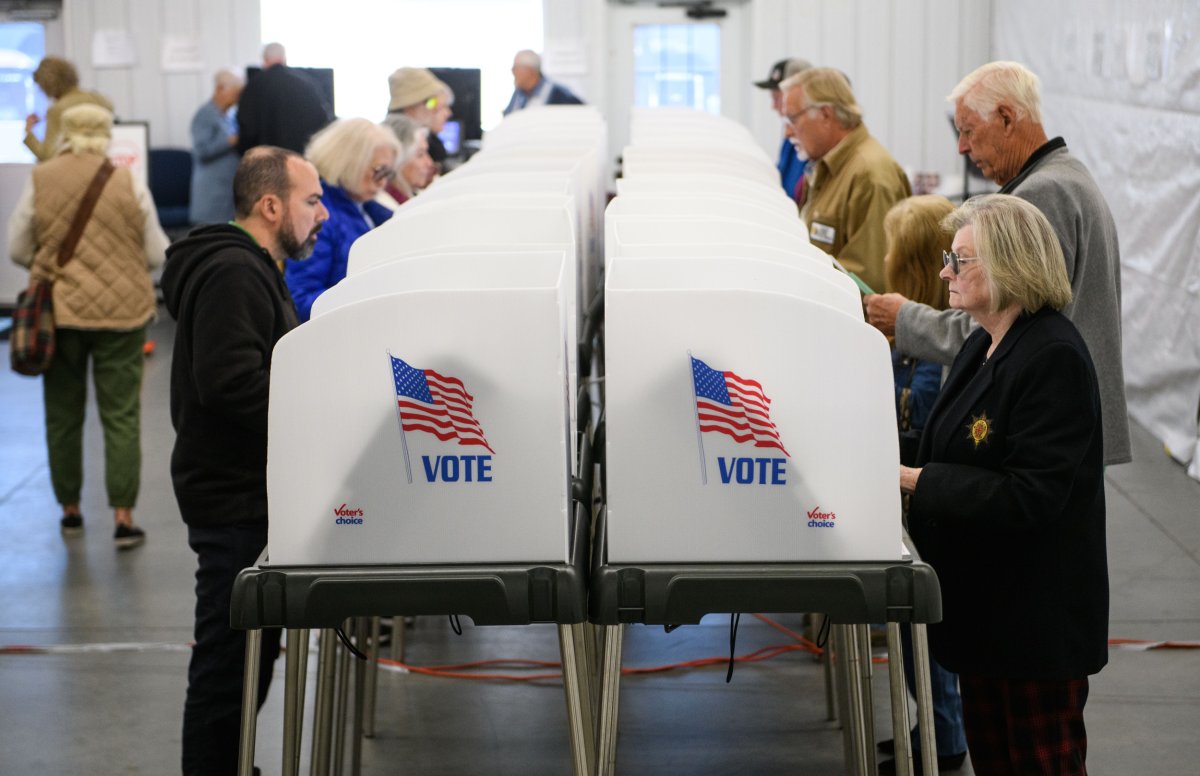A new poll by 2020's most accurate pollster has revealed a scenario in which an Electoral College draw between Vice President Kamala Harris and former President Donald Trump is possible.
The survey, published on Saturday by AtlasIntel, showed Trump ahead in Georgia, Michigan and Pennsylvania, while Harris led in North Carolina, Arizona, Nevada and Wisconsin. If those results were replicated in the election, each candidate would receive 269 votes each, with no path to 270. AtlasIntel was deemed the most accurate pollster in 2020 by statistician Nate Silver, who said the firm was "close on the margins."
Current polling averages from FiveThirtyEight also put Georgia and Pennsylvania in the red column, but Michigan remains blue. Trump also leads in Arizona and North Carolina, according to FiveThirtyEight. If the election were held today, he would win with 281 Electoral College votes, based on the current model. The FiveThirtyEight forecast also says that there is only a three percent chance that there is no overall winner in the Electoral College.
What Happens if There Is a Tie in the Electoral College?
The U.S. Constitution states that "if there be more than one who have such Majority, and have an equal Number of Votes, then the House of Representatives shall immediately choose by Ballot one of them for President."
This means that in the event of a tie in the Electoral College, the House of Representatives chooses the president. However, it wouldn't vote by individual member but by delegation, meaning representatives group together and vote as a state.
Casey Burgat, a former congressional staffer and Legislative Affairs Director at George Washington University, told Newsweek that a draw in the Electoral College would be unlikely, but that Trump would have an advantage, as Republicans currently hold majorities in 26 states.
"In Trump's case, an Electoral College tie would very likely result in him still being sworn in as president," Burgat said.

"Even though there's a tie he still would win the ultimate prize, which would make him much more likely to accept the result of the election. Though, there's still a good chance he would claim he won the election by much more than what produced the Electoral College tie."
However, the current Congress would not be the one taking the vote- it would instead by the new House of Representatives elected in November and who take their seats in January 2025.
While a tie would be controversial, Burgat also said that it would still probably lead to a peaceful transfer of power, as Harris would be less likely to contest the result of the election.
"For Harris, her statements about protecting and strengthening our institutions, including the integrity of our elections, would make her much more likely to accept the results of the election in all scenarios, including an Electoral College tie."
The House has picked the president only twice in history. In the 1800 election Thomas Jefferson and Aaron Burr received the same number of electoral votes, and it took 36 ballots for lawmakers to pick Jefferson. Twenty-four years later, no candidate received a majority of electoral votes, with John Quincy Adams, Andrew Jackson, and William H. Crawford. The House chose Adams, despite Jackson having won the most popular and electoral votes.
Do you have a story we should be covering? Do you have any questions about infrastructure in the U.S.? Contact LiveNews@newsweek.com.




















 English (US) ·
English (US) ·